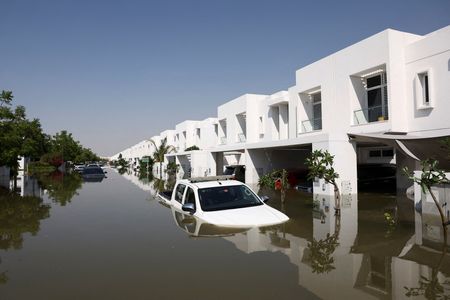DUBAI (Reuters) – Dubai will spend 30 billion dirhams ($8.2 billion) to boost its rainwater drainage system after the Gulf city was hit by the heaviest downpours recorded in the UAE in 75 years in April.
Dubai, widely considered the Gulf’s tourism and business hub, was brought to a standstill as rains wreaked havoc, damaging roads, shops and homes, and forcing its Dubai International Airport, one of the world’s busiest, to sharply reduce capacity.
The chaos resulted in four deaths and raised questions about how Dubai would face extreme weather events in the future.
Researchers anticipate that climate change will lead to heightened temperatures, increased humidity and a greater risk of flooding in parts of the Gulf region, driving countries to come up with new solutions.
The project, codenamed “Tasreef” is set to be completed by 2033. It will cover all areas of the emirate, ensuring its “readiness to face future climate-related challenges,” and meet its “needs for the next hundred years,” Sheikh Mohammed bin Rashid Al Maktoum, Dubai’s ruler, was quoted as saying late on Monday.
The infrastructure will enhance the capacity of Dubai’s rainwater drainage system by 700% and raise it to more than 20 million cubic metres of water per day. It will be one of the largest rainwater collection project in the region, according to Dubai’s media office.
The project is a continuation of drainage projects launched in 2019, covering its southern areas of Expo, Jebel Ali and Al Maktoum International Airport City, which is set to host the world’s largest airport with a capacity of up to 260 million passengers – five times the size of Dubai International.
($1 = 3.6726 UAE dirham)
(Reporting by Federico Maccioni, Editing by Anil D’Silva)





